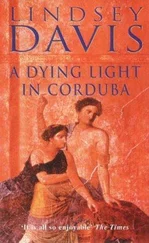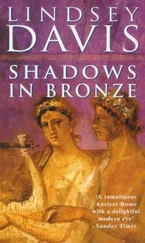Larius stayed up on the pavements, because of the roads’ hidden potholes and stepping-stones. At every side street he had to encourage their mount to drop down its front hooves and cross, unable to tell where the road was, or how high the next pavement up which it had to scramble. The hinny panicked; he panicked, but they had to go on.
In places they forced their way through groups of other fugitives, but sometimes there was no one about, and they felt they were the last people on earth. Their hinny, fearful and keen to escape, was wading, sliding, staggering. Larius leaned forwards, over Marciana, talking in its hairy ears, encouraging, soothing. Hell, he was soothing all of them. He and the child were equally scared.
‘Are we going to die?’
He made a reassuring noise. With neither saddle nor stirrups, he was constantly struggling for balance. Any father knows how to pretend he is concentrating on the job in hand too much to answer a hard question.
Any daughter knows how to interpret that. At least we are together, thought Marciana. Doggedly brave, she would not have wanted her loved papa to be here in trouble on his own.
Still fairly innocent, she wondered what this adventure would be like. Larius, whose heart had never stopped sinking since the crisis kicked off, did not want to find out.
His first idea had been to follow his mates, travelling down to the Marine Gate. He and Marciana were starting from the very centre of the town. No direction would be quicker than any other, except that if they continued towards the water they would be on the main street, which was wider and more familiar, then eventually pass through the Forum. That would be a clear open space for the hinny to cross on level ground. Though Larius wrestled with the idea, he decided against it. Most of the civic buildings were in a state of renovation. Pompeii was in the throes of a really big rebuilding project: a huge new temple of Venus half completed, the old Temple of Jupiter decommissioned and its statuary dismantled, bath complexes under repair, markets being reorganised. He knew the Forum had been obstructed with building materials which must now be partly hidden under erupted detritus, hard-edged clutter that would be tricky to manoeuvre around. It could bring the horse down.
Besides, people had rushed towards the sea. Pompeii had disgorged a multitude, who would be clogging the jetties and the roads to the south. He envisaged chaos. If there were any boats, they would be full. And, Larius guessed, maybe there were none. People might hope in vain. If there turned out to be no sea transport, everyone would rush away hysterically overland, causing hideous congestion on the roads.
No one would regulate an evacuation. Larius did not know, but it wouldn’t have surprised him, that even the commander of the fleet at Misenum only rowed over to help a personal friend, with no apparent thought for the ordinary populace. A managed fleet of triremes and local shipping could have achieved something. No such plan was initiated.
Save the rich and sod the poor. What changes?
Still thinking, Larius knew where one possible boat existed, a boat owned by a crack-brain so bone idle he would probably be sitting on the beach right now, watching the mountain’s pyrotechnics, dimly chewing an anchovy. Vitalis.
Larius made up his mind. He would struggle up to Oplontis, then make Vitalis row him up the coast. If not, he’d pinch the boat and row it himself. So Larius turned off before the Forum, then rode the hinny out by the Herculaneum Gate.
He was heading towards the volcano, but also to the town where his wife and other children were. He had a ridiculous hope that he might somehow collect them. Ollia, he knew, would trust him to try. Dear gods, they were both barmy; he hoped Ollia had had the sense to get away without waiting.
Even so, he was going there. He felt an unexpected focus; his wife and the twins seemed oddly remote from his own immediate predicament, yet they were tugging at his heart. A desperate concern was the daughter in his arms. Always prone to sickness, she had begun coughing and spluttering scarily. Marciana might boss him like an adult, but now Larius felt acutely aware of how slight her body was, a father’s dread of how a young child’s hold on life can suddenly become fragile.
Ollia must have experienced this many times when her children were sick in their feckless father’s absence. For the first time, Larius felt genuine sympathy for her troubles.
You are helpless. You do all you can for them, but nature ignores your desperation. You cannot let your own burden fall on them, or your fear communicate; you must conceal your pain. They may live or die; you are unable to do anything except watch as they stay or go from you.
Now it was his turn to cope. Now Larius was alone with it. Jupiter, this was a disaster.
In the boatsheds.
‘It’s smelly! I don’t want to go in there.’
‘Just a bit of seaside pong. Don’t make a fuss.’
‘When will it be over?’
‘I don’t know, it’s no use asking me. We all have to be patient. Just be a good girl, will you?’
A soldier was directing the crowd taking shelter. ‘Let’s keep it civilised – put the women and children right inside. The young men can stay out on the beach, if there’s a shortage of space…’ Ollia felt grateful for his guidance, grateful for any. ‘Come further along, there will be more room in the next shed.’
Aged about forty, he was in uniform, armed and carrying a toolbag. Had he been on leave or on a mission? He was making himself useful. He helped Ollia, lifting one of the younger twins against his shoulder, scooping the other under his free arm as they found a shed that still had room. ‘Are these all yours?’
‘All mine, and another on its way,’ she answered firmly. She could see him eyeing her up, hoping she was just their nurse. Ollia made it clear she was a married woman, respectable, unavailable. Larius wouldn’t want her getting friendly with a soldier. Anyway – for heavens’ sake!
Ollia had long ago learned to complain about Campanian men, overlooking what those in her home city had been like. She let him help, but only because suspicion of a stranger kept Varius quiet. Ollius was staring at the man’s sword. So was Lolliana, but the girls shrank against their mother shyly.
Once inside the dark boatshed, the soldier subtly moved on, taking his unwelcome overtures. Probably he just wanted a companion to take his mind off his own fear. Maybe he would be lucky, find some other young woman to flirt with.
After she rebuffed the soldier, Ollia listened and was surprised by how freely her companions were talking to strangers in this shared nightmare. ‘I was just fetching in my bedcovers from airing as if it was any ordinary day! Then this happened. It’s terrible…’
‘Terrible,’ Ollia sympathised automatically, not wanting to be reminded how bad it all was. More than usual, she was conscious of being from Rome where people were brusque and private. Ollia needed to see what was going to happen before she commented on any of it.
She was hungry. They all were. She had brought no food. They must do without – she would have to find something tomorrow for them. She was tired too, desperately weary after this awful day and her fear of what was yet to happen.
From inside the sheds, which faced out to sea, those sheltering could no longer see the mountain’s fiery outbursts, though they heard and felt reverberations from endless explosions inside the deep magma chamber. Under cover of the vaulted roofs, with a whole escarpment above them to muffle the outside commotion, people might feel a little more secure.
They were packed in, hundreds of them, including the elderly and invalids. Many were women and children, as if the male population had selfishly made off earlier, leaving their dependents. But that was unfair. Most men would have been elsewhere this morning, going about their normal business out in the fields or on the water. If they had not rushed home, perhaps they had been simply prevented by events.
Читать дальше












